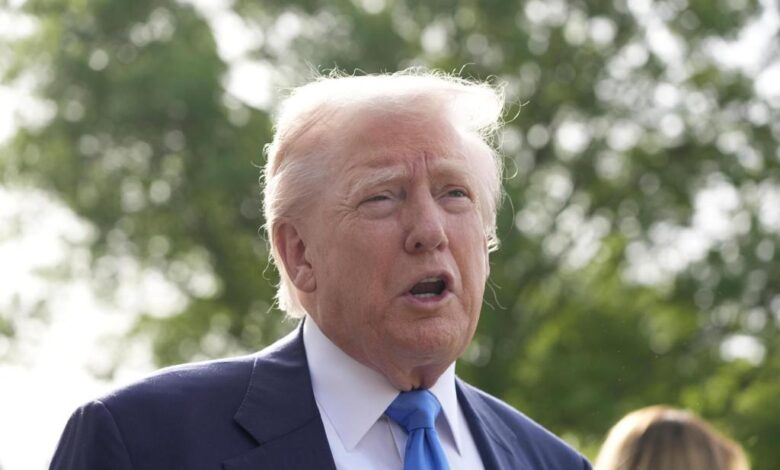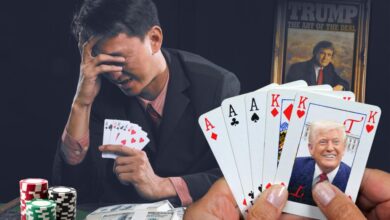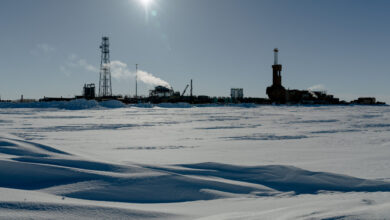Trump keeps contradicting himself on tariffs, unnerving world economy

By JOSH BOAK
WASHINGTON (AP) — President Donald Trump is facing challenges in his approach to tariff plans, as he continues to send conflicting messages about his trade deals and negotiations.
Despite claiming to be on the verge of finalizing new trade agreements in the coming weeks, Trump has also admitted that scheduling all the necessary meetings is a daunting task. Additionally, he has already implemented new tariff rates on his self-proclaimed “Liberation Day,” causing global economic uncertainty.
While Trump asserts that he is actively engaged in tariff negotiations with China, conflicting reports from Chinese officials and U.S. Treasury Secretary Scott Bessent suggest otherwise.
The uncertainty surrounding Trump’s tariff policies is causing anxiety among employers and consumers, with potential repercussions for the economy and foreign relations.
Trump’s decision to impose high tariffs on China has sparked retaliatory measures and raised concerns about a possible trade war that could lead to a recession.
Trump’s Tariff Negotiations
In a recent interview, Trump expressed confidence in setting tariffs at 20%, 30%, or even 50% within a year, despite temporarily reducing import taxes amid market volatility.
However, these conflicting statements are fueling uncertainty and concern among American businesses, leading to a decline in hiring and investment.
At the recent International Monetary Fund conference, world finance ministers criticized the lack of clarity in the Trump administration’s tariff goals, further exacerbating the confusion surrounding trade negotiations.
Global Negotiation Efforts
Various countries, including Switzerland and South Korea, are seeking clarity on tariff negotiations with the United States, with differing approaches to resolving trade disputes.
While Trump remains optimistic about reaching deals with other countries, challenges such as conflicting regulations and standards pose obstacles to successful negotiations.
Impact on Consumers and Businesses
As companies grapple with the uncertainty of tariff policies, consumers may face higher prices and potential shortages of goods, particularly those imported from China.
Companies like Afina are already feeling the effects of tariffs, with American-made products facing challenges in competing with cheaper imports.
Overall, the ongoing tariff turmoil under the Trump administration is causing disruptions in global trade and economic instability.
AP economics writer Christopher Rugaber in Washington and AP writers Jamey Keaten in Geneva and Mari Yamaguchi in Tokyo contributed to this report.
Originally Published:





